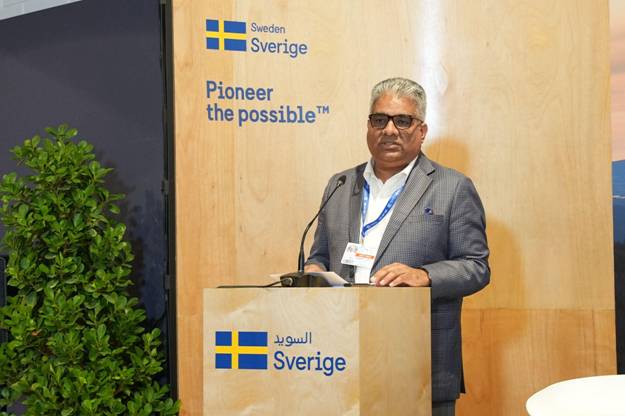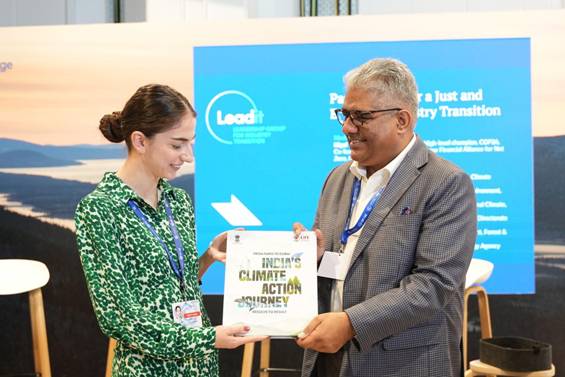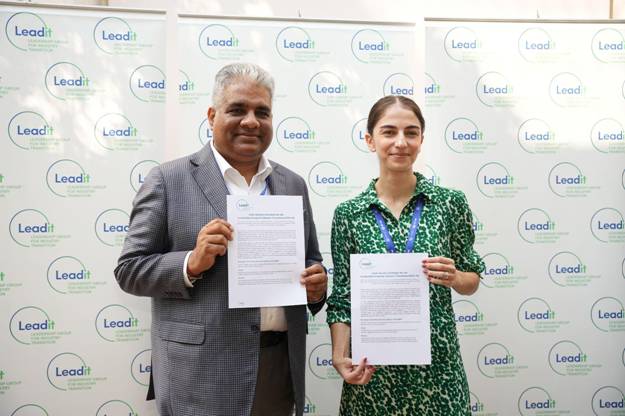
There has been a significant shift in the global industrial landscape as industry transition has climbed higher on the international agenda since the launch of LeadIT in 2019, Union Minister for Environment, Forest and Climate Change has said today. However, he has underlined that the real transition challenges of technology transfer and finance are yet to be addressed.
Speaking at a side event on Partnerships for a Just and Equitable Industry Transition at COP28 Summit in Dubai, the Minister struck a positive note on the matter and said that this challenge can be addressed by collaborative international mechanisms that need to ensure that barriers such as intellectual property rights are addressed to facilitate technology transfer from developed to developing countries.
The Minister buttressed his statement from LeadIT Summit stating LeadIT 2.0 will focus on supporting low carbon transitions on the ground through a structured framework and three pillars: a global forum for dialogue; technology transfer and co-development; and an Industry Transitions Platform. Through these pillars, the members will continue to support, engage in and promote industry transitions.

Speaking of the collaboration with Sweden, the Minister said that the India-Sweden Joint Declaration on Industry Transition Platform is not merely a partnership between two nations but an alliance for a sustainable future. It is a testament to our collective resolve to address the climate crisis and shape a world where industries thrive harmoniously with the environment, he added.
The Minister also drew the attention of the audience to the objectives of India-Sweden ITP that includes strengthening institutional framework; unlocking conditions for technology demonstration projects; fostering innovation, research and development, and capacity building and mobilisation of finance and investments. “It will catalyze collaboration, foster knowledge exchange, facilitate technology transfer, and promote joint research, and development endeavors, tailored to support India’s specific needs in achieving a low-carbon industrial transition”, he stated. “It will further promote innovation, empowering Indian and Swedish industries to adopt cutting-edge solutions and implement sustainable practices that boost productivity, minimize environmental impact, and generate new economic opportunities”, he said.
Shri Yadav invited the stakeholders to work together to harness the power of innovation, collaboration, and technology to shape an industry of the future – an industry that is sustainable, resilient, and inclusive, driving prosperity for generations to come.
Ms. Romina Pourmokhtari, Minister for Climate and Environment of Sweden, while speaking on the occasion has stated that decarbonisation and green transition hold immense possibilities for regional development, new jobs, investments in new technologies and improved competitiveness. While admitting that industrial development was vital for social and economic prosperity of all countries, she cautioned that lack of commercially viable low carbon tech and long investment cycles in industrial sectors risk locking in carbon emissions for decades. She went on to add, LeadIT provides an opportunity to foster partnerships between major industry transition frontrunners and ambitious economies that wish to align their industrial development with goals of the Paris Agreement.

Background
India and Sweden are hosting this side event at COP28 that will present the objectives of the next phase of the Leadership Group for Industry Transition (2024-2026), LeadIT 2.0 and a new bilateral Industry Transition Platform between Sweden and India.
The event addresses how LeadIT 2.0 will accelerate a just and equitable industry transition through partnerships, technology co-development, and financial and technical assistance focused on industry decarbonization for emerging and developing economies.
At COP28, LeadIT members adopted a Mission Statement for the initiative’s next phase (2024-2026) to reaffirm their dedication to accelerating a just and equitable industry transition to achieve the goals of the Paris Agreement.


***
MJPS/SS

